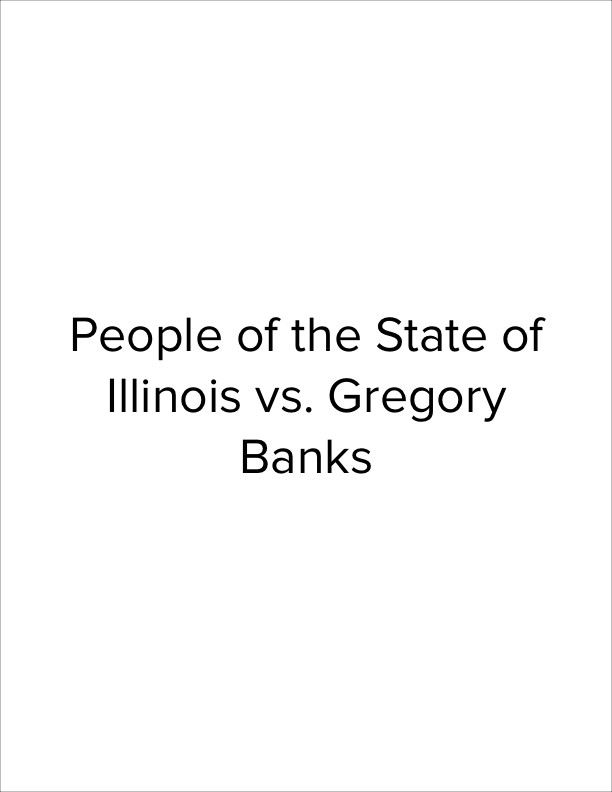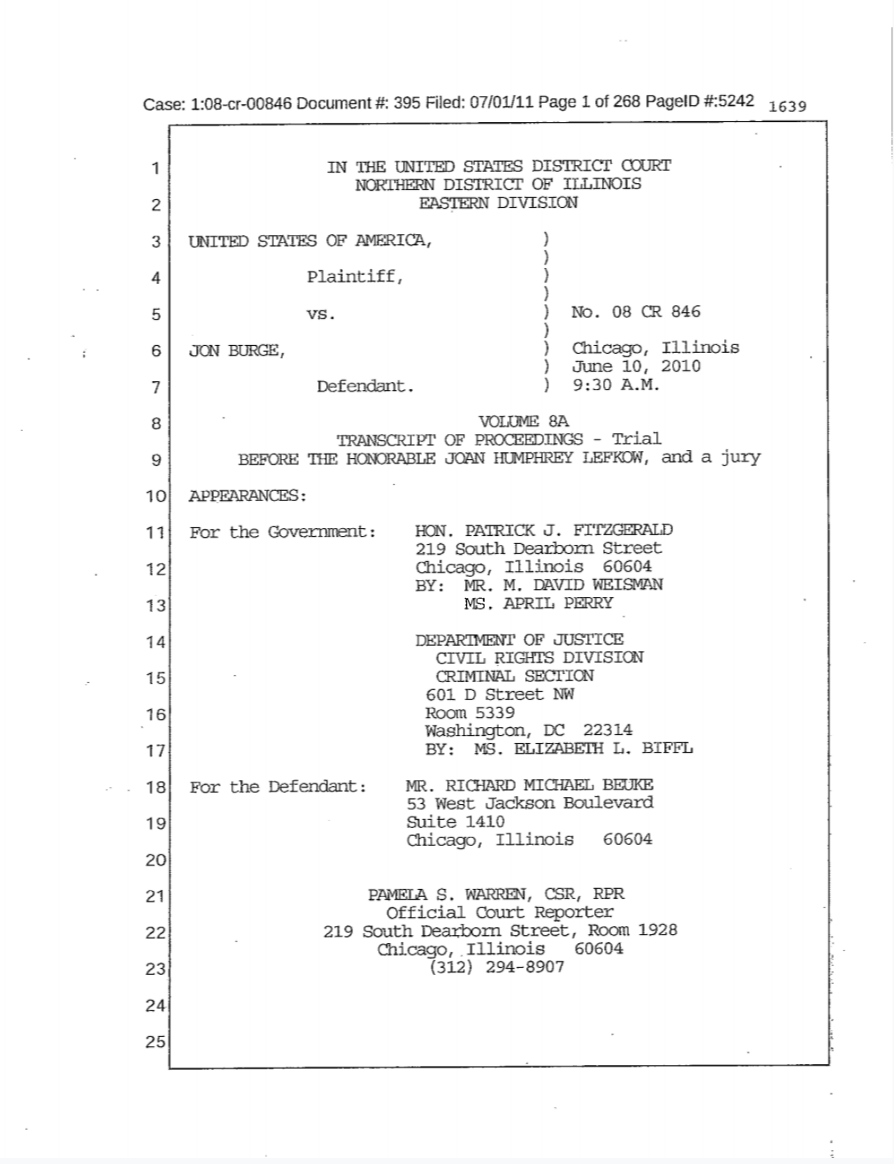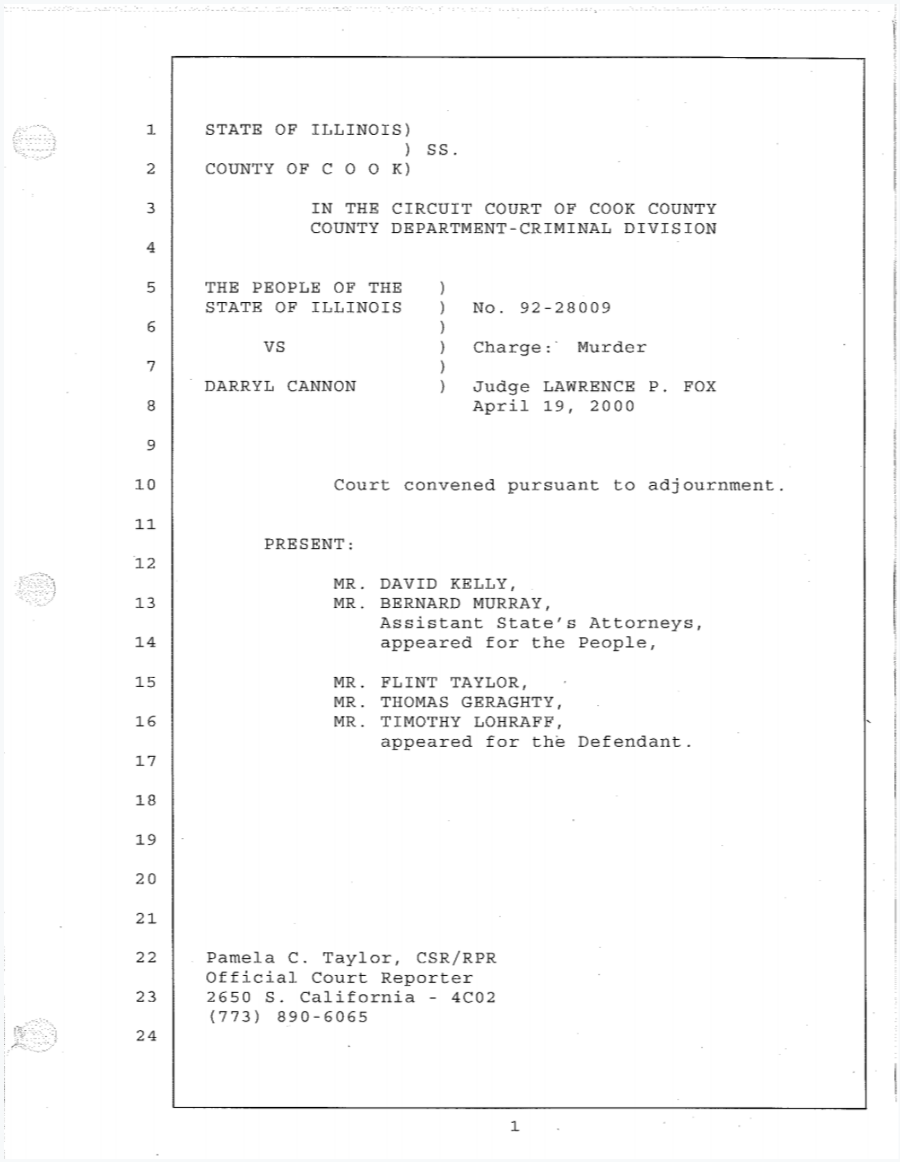Gregory Banks was arrested on October 28, 1983, after police alleged he shot two men, one fatally, at a game room on 95th Street on Chicago’s South Side. Over the next decade, Banks’ case would become one of the key touchstones in revealing the extent of police torture in Chicago.
After Banks was accused and charged with armed robbery and murder, Banks’ original trial judge rejected his claims of beating and torture. On October 31, 1990, prosecutors dismissed charges against him, acknowledging they had insufficient evidence. Banks was imprisoned for seven years and three days before he was freed.
In 1993, Banks received $92,500 in a settlement with the City of Chicago, according to the Chicago Reader.
Torture at Area 2
Banks was just 20 years old at the time of his arrest at the game room on the South Side, where people would come for a hamburger and to play Pacman and Centipede, he remembered in his testimony. On that October night in 1983, Banks had fought with Leon Barkan and Jeltro Givens during a drug deal involving cough syrup and codeine. While the two scuffled, as an appeals court would later describe, Banks pulled a gun. Evidence suggested that Leon Barkan was shot inadvertently while the two fought. Barkan later died, while witness Givens escaped with less severe injuries.
After his arrest, Banks was tortured at Area Two over 31 hours on October 28 and 29, 1983.
Journalist John Conroy, in his 2001 book “Unspeakable Acts, Ordinary People,” recounted Banks’ testimony in his original case. At Banks’ original trial, he testified about the torture while his attorney tried to introduce evidence that another man, Lee Holmes, had been similarly beaten by the same officer weeks earlier. Conroy wrote:
Banks had testified that three Area 2 detectives put a gun in his mouth and threatened to blow his head off, beat him with a flashlight, kicked him about the ankle and stomach, and said, “We have something for niggers” just before putting a plastic bag over his head. He claimed he was suffocated twice before he agreed to give a statement confessing to involvement in a murder.
Banks claimed Detectives Peter Dignan, Sergeant John Byrne and Charles Grunhard had beaten and tortured him, before his initial trial on June 13, 1985, according to testimony he later gave in the federal perjury trial against former police Cmdr. Jon Burge.
In the same testimony, Banks said Grunhard began to kick him, and Byrne hit him all over his back and legs. As they did this, Banks told the court, they said: “‘We know you did it, we want you to tell us why you did it.’”
After Dignan put the bag on his head a second time about ten minutes later, Banks said, “I tell you anything you want to know,” he recounted in 2010.
“Bruises across my legs, they were swollen, across my fingers,” he said during testimony as a part of Burge victim Darrell Cannon’s trial in 2000. “My ankles was swollen, my wrist was swollen, my chest was swollen, and I had a lump under my skin, under my stomach,” by the time detectives Byrne, Dignan and Grunhard had finished torturing him.
Cook County Circuit Court Judge Robert L. Sklodowski declined to consider evidence of torture or Banks’ potentially coerced confession as evidence that could be used to exculpate him during his original trial. Banks was convicted and sentenced by Judge Sklodowski to 50 years for first-degree murder and armed robbery on September 9, 1985.
Evidence of Banks’ torture
Banks was interviewed by Sharon Tom of the Office of Professional Standards, the name for the police oversight review board at the time, on May 14, 1984, in an interview in which Banks again described the events of the night.
Dr. Walter Romine, who saw Banks days after he was admitted to Cook County Jail, testified at trial on June 13, 1985, that Banks “said he received injuries at the hand of the Chicago Police Department, and he said that he was taken from his detention cell sometime later at night and that a bag was placed over his head.” Romine testified that Banks’ injuries “were consistent with the story that he told me,” of being beaten in order to extract a confession.
A conviction overturned
Appellate Judge Dom Rizzi excoriated the trial judge in an opinion issued six years later. Rizzi broadly reprimanded judges who hadn’t acted on claims of torture in a historic opinion that resulted in overturing Banks’ conviction.
“Trial judges must be most circumspect when it appears that a right guaranteed to every citizen by our constitution may have been violated by police brutality or racial discrimination, for those affected are invariably the poorest, the weakest and the least educated, who are not sophisticated enough or do not have the resources to see and ensure that they are not denied the protections afforded by the rights and guarantees of our constitution,” Judge Rizzi wrote, as recounted by John Conroy in the Chicago Reader.
The full appellate court also agreed, expressing disbelief that Banks’ torture wasn’t taken seriously at his first trial.
The appellate judges also said evidence presented at his original trial should have been taken more seriously. Banks had argued that the death of Barkan was inadvertent after the pair struggled over his gun. The appellate court in its December 1989 decision agreed, citing forensic evidence that showed the bullets hit the ground. “Surely, one does not point and fire a gun at the ground if he intends to kill someone,” the court said.
Prosecutors had scant other evidence to tie Banks to the crime aside from the coerced confession. The city dropped the charges against him on October 31, 1990.
Banks went on to help establish and later won relief from Chicago’s historic reparations fund. “Nobody believes them, but we believe them,” Banks toldThe Guardian, “because we know it happens, because it happened to us.”
—Written by Amanda Rivkin
Documents
Media
“Deaf to the Screams.” July 31, 2003, Chicago Reader. Journalist John Conroy delved into the Jon Burge-era cases he helped uncover, with Banks’s case serving as a prime example of where officials might have blown the whistle on the abuse.
Unspeakable Acts, Ordinary People. Book by John Conroy. Chicago journalist John Conroy considers the torture of Gregory Banks and others in a broader context.






